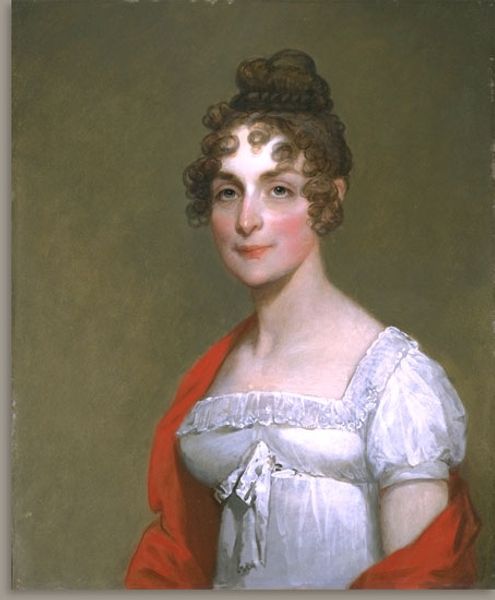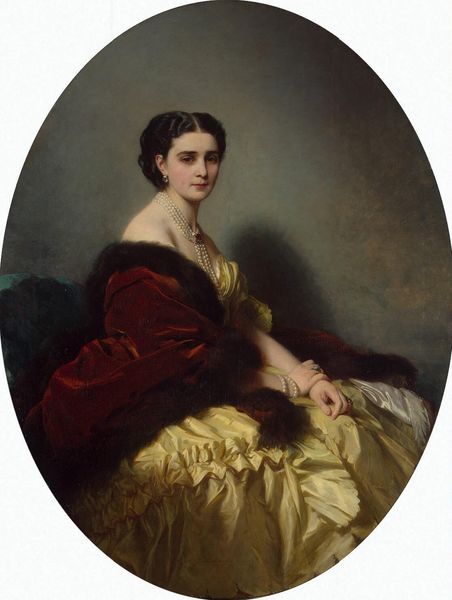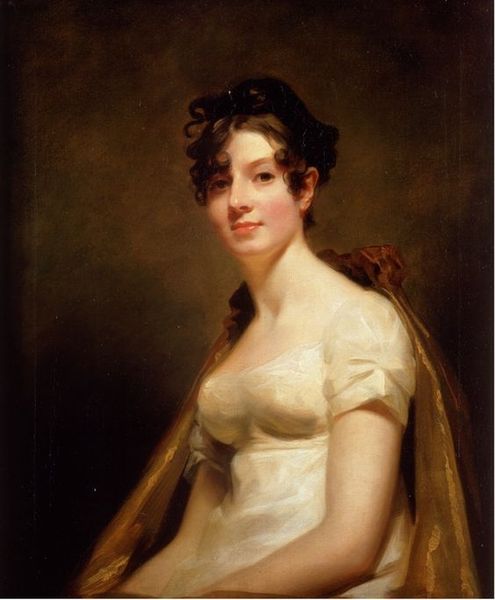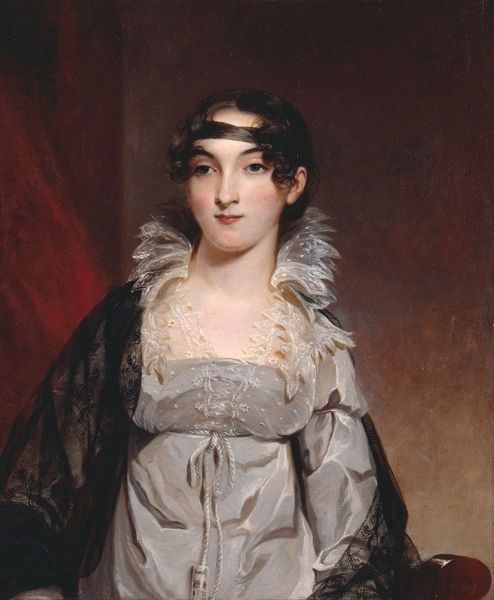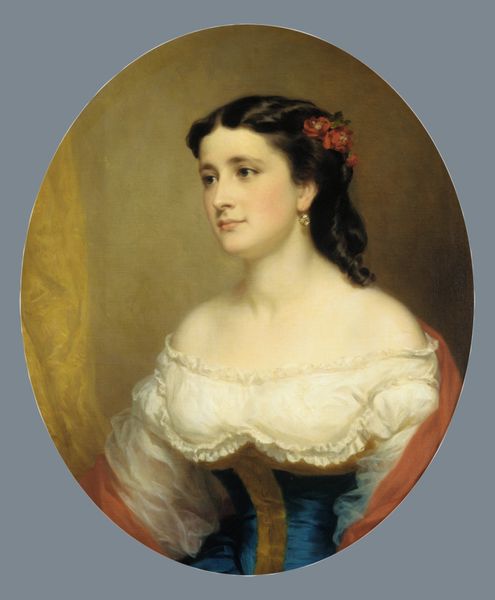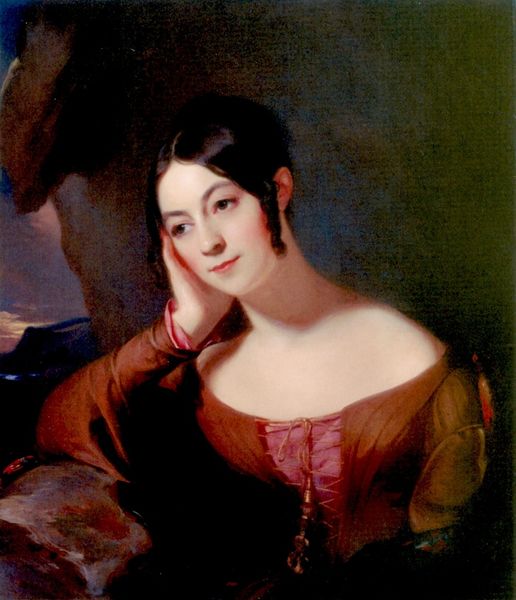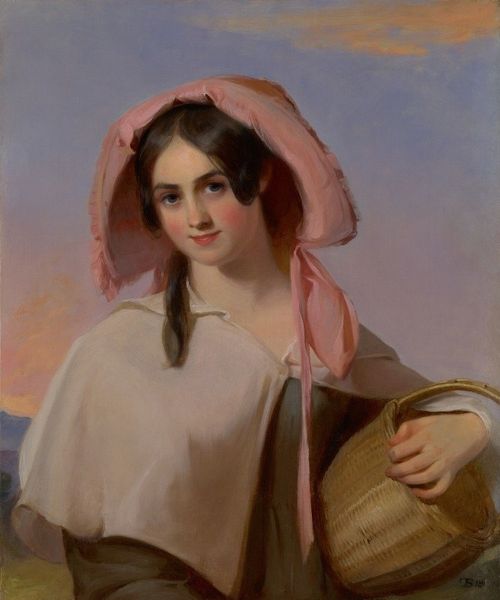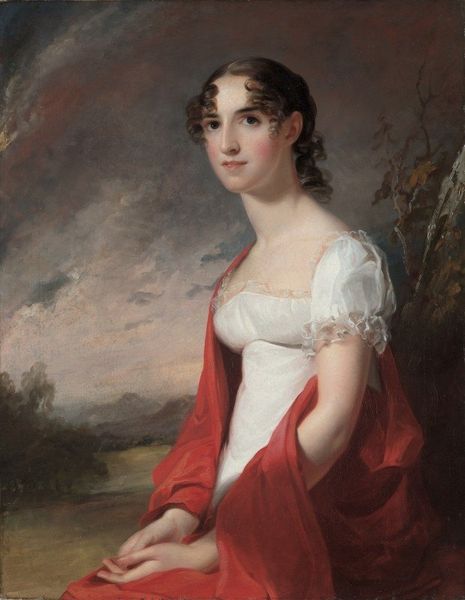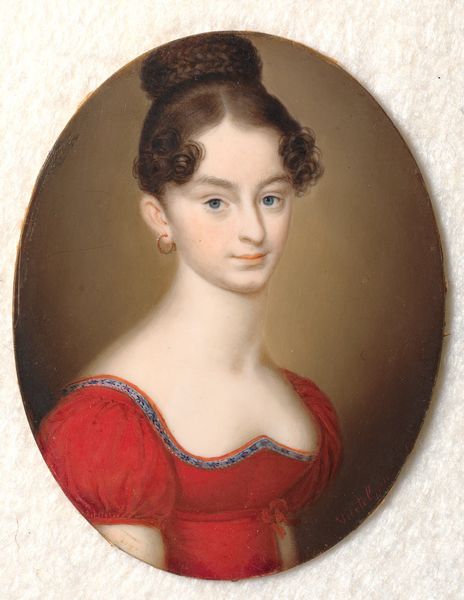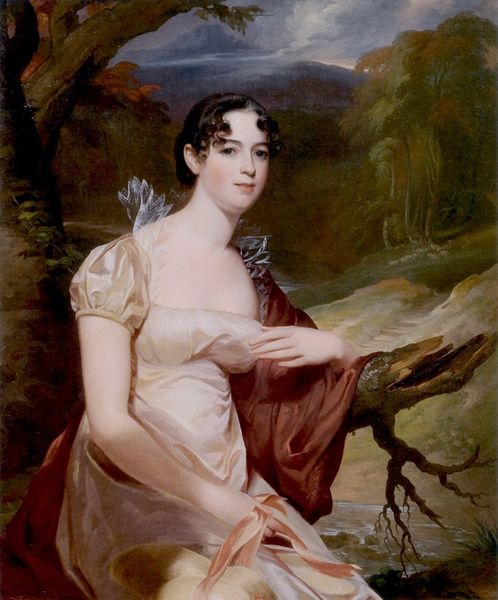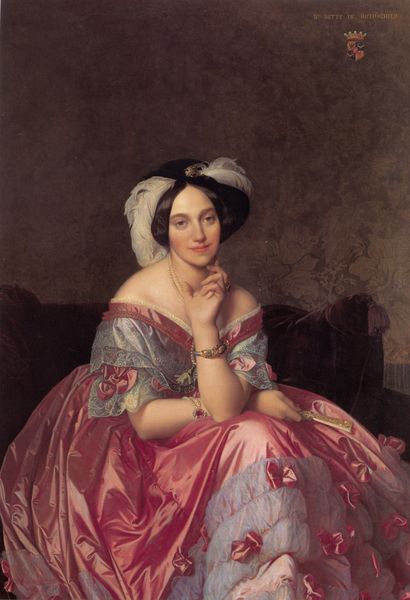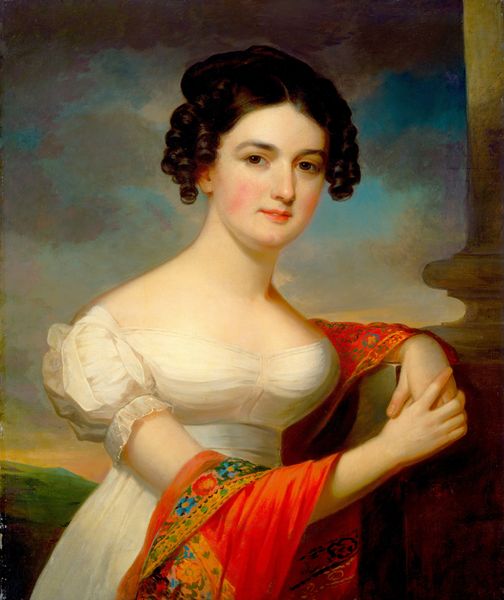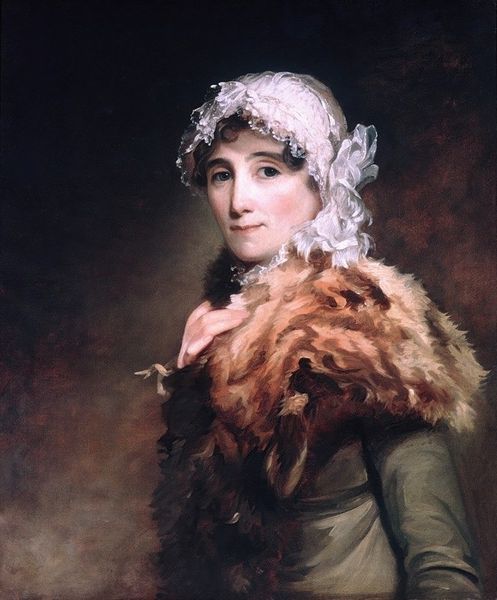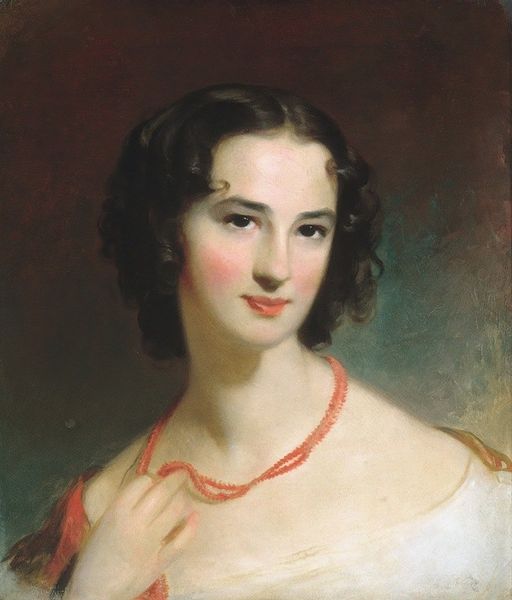
painting, oil-paint
#
portrait
#
self-portrait
#
painting
#
oil-paint
#
portrait reference
#
romanticism
#
history-painting
#
academic-art
Copyright: Public domain
Editor: Here we have Thomas Sully’s "Rebecca Gratz," painted in 1831 using oil on canvas. The portrait is strikingly soft. What draws my attention is how the subject's gaze meets ours, conveying a sense of immediacy and connection. What visual elements strike you most prominently in this composition? Curator: Note Sully's masterful use of light. Observe how it delicately models the contours of her face, particularly the play of light and shadow around her eyes and cheekbones. Consider, too, how this controlled illumination contrasts with the looser brushwork in the background and the drapery. Do you perceive how this tension creates depth and focus? Editor: I do see that. The smoother brushwork on her face emphasizes its importance compared to other areas. But how does that relate to a formalist perspective? Curator: We interpret the subject's essence not through external context, but through the intrinsic artistic qualities the brushwork reveals to the viewer. The sharp lines and blurred patches build the sensation and emotion of the moment that’s rendered in paint. Ask yourself, what is achieved through such juxtaposition of controlled and less controlled applications of oil paint? Editor: That’s helpful. By emphasizing certain features through careful brushwork and contrasting it with looser, more abstract areas, Sully directs our eye and manipulates our interpretation. I suppose it's through these purely visual elements that we grasp the artistic intent. Curator: Precisely. Focus on these formal relations within the image, eschewing narrative concerns. Editor: That’s a very interesting way to approach and interpret the art! I’ll remember to look closer at those qualities next time.
Comments
No comments
Be the first to comment and join the conversation on the ultimate creative platform.
